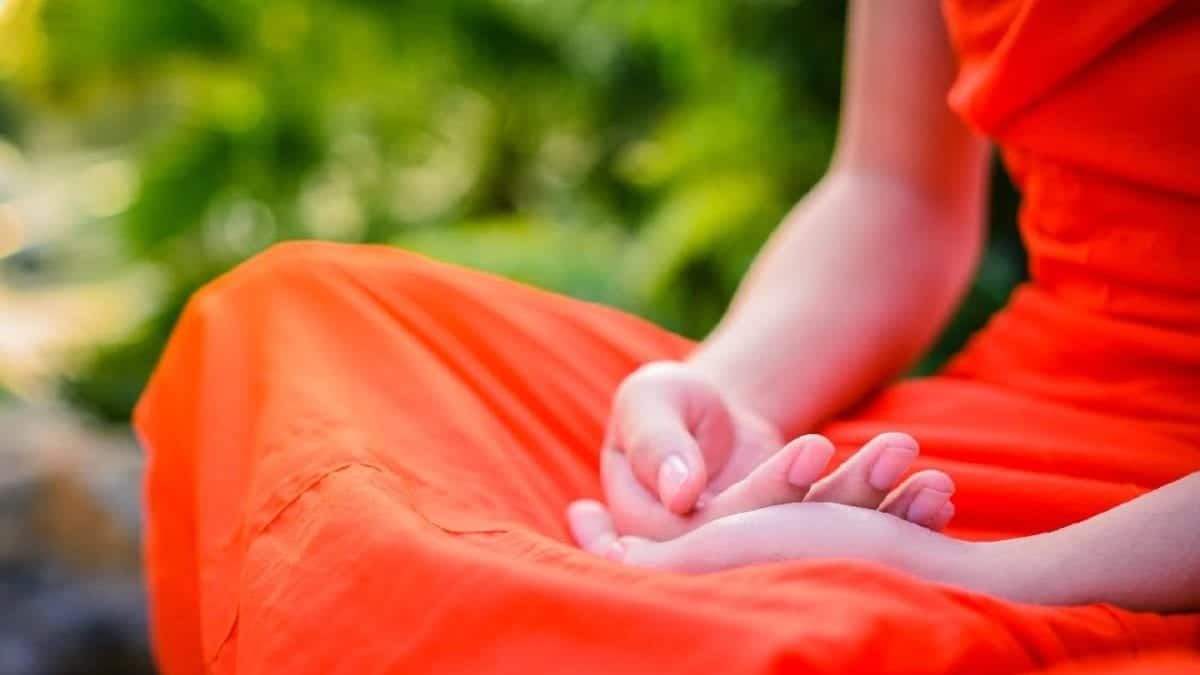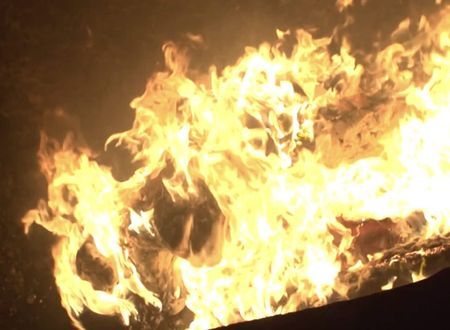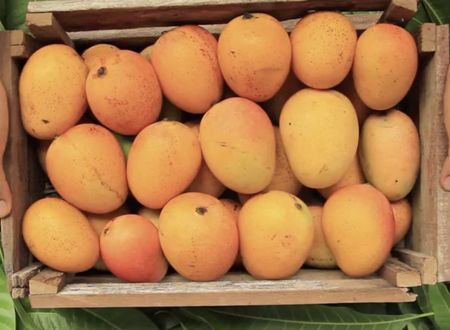
The royal danseuse hurried to her house on a humid monsoon night. From the forest trailed the feverish cries of peacocks and chataka bird, calling out to the rainclouds. “If the Gods chose to answer with a downpour at this moment, I would be stranded,” she thought. Now and then, flashes of lightning pierced a sharp slit in the blanket of night, revealing the girl’s curvaceous silhouette, though only for a split second. A silk saree hugged her body like snakes coil around a sandalwood tree. The headiness of youth pumped through her veins. She—the jewel of Mathura. No one could match her beauty and grace. Thunder rumbled again. Quickening her pace, she strode through familiar alleys of the slumbering city. The flame of her lamp danced sensuously in the wind.
The danseuse owned the city, well, figuratively. People swooned over her performances. In the loneliness of the night, her mind began to play out the adulations heaped upon her after the concert . She recalled every word of appreciation. “Oh, how, the king and his ministers had clapped after her performance!” The deafening acclamation had competed with thunderclaps outside. Today, the heavens would hear about an earthly Apsara. Indra’s courtesans would be jealous. Smiling, she moved close to the city wall where many mendicants lay curled up in a bundle. Her thoughts came to a grinding halt as did her feet when she bumped against a human frame. Clicking her tongue in horror, she quickly drew back and lowered her lamp. Its light rested on the serene face of a young Bodh bhikshu. For sure, he was hurt, yet his face bore no trace of a complaint.
In her life, she had met handsome men and gallant men. Many a man had extolled her beauty. They would turn into statues in front of her. Today, the peaceful visage of the monk had moved her against her will. She stood transfixed. With folded hands, the monk offered his apology and began to tuck back into his blanket.
“Dear one, such dusty city corners are not a fitting place for you. Come to my grand abode. There, on a soft bed bedecked with flowers, you must rest like a prince,” she said.
The young monk — Upagupta — looked at her. With a bated breath, she waited for his reply. “Go on, young lady. I will come to you when the time is ripe.”
He gazed into the impenetrable darkness beyond her. Puzzled, she went on her way, the music of her anklets trailng behind her.
********
Seasons rolled on. In spring, the city of Mathura prepared for the annual festival. The breeze carried scents of fresh blossoms on its delicate wings. Birds, bees and butterflies were overworked. Garlands of marigolds and roses were festooned on the ramparts of the fort. However, the city bore a deserted look since the townsfolk had moved to the encampments in the woods for ‘vasantotsava’. Still, faint sounds of dundhubhis, cymbals and veena could be heard as far as the city.
Occasionally, loud guffaws broke the reverie of the ailing woman, who lay huddled in her tattered shawl. The bees and flies, after having hovered over flowers and fruits, came to inspect her festering wounds. In vain, she tried to shoo them away. In vain, she tried to stretch her cover to hide her pockmarked face. The face, the body that once inspired poetry, had now become her burden. She, ‘the loved one’, had been driven out on the dusty road so that her contagion would not pollute the town. For days, she had lain in absolute neglect. Her bony hands lost the will to swat the flies. In the evening darkness, she heard a clip-clap of footsteps approaching the city wall. Her shrunk frame tried to gather retreat into itself like a small bale of refused clothes. If only the earth would devour her! If only she could become the wall. Suddenly, a foot struck her emaciated frame.
“Oh, dear God, who lies there?” A young ascetic cried out in horror. He bent down on his knees. His lamp revealed the danseuse, unrecognisable in her dishevelled form. She sat like a stone — motionless. Her eyes, closed in helplessness. No voice came out of her parched mouth.
The ascetic held her around the shoulders. Steadying her against the wall, he made her drink water from his vessel. After many days, someone had cared to touch her and speak to her. She felt somewhat human.
“Who are you, merciful one? Nobody stops to look at me.”
“Oh, you’ve forgotten. Didn’t I promise to come back? The time has come to keep my word.” With gentle hands, Upagupta began to clean her wounds.
(This is a fictionalised narrative of an anecdote immortalised by Rabindranath Tagore in his poem, “Upagupta”. The poem tugs at my heart; I had been meaning to write it as a story for some time. To me, it is a tale of grace as much as that of compassion. Like Upagupta, the divine comes to us when we need him/her. It cannot be a moment of our choosing. Does it mean that God will only visit when we are in trouble? I don’t know, but the idea surely gives much hope. One thing is for certain, your Guru’s or divine’s capacity to love is fathomless. So, just trust.)
Here’s the poem by Tagore.
Upagupta, the disciple of Buddha, lay sleep in
the dust by the city wall of Mathura.
Lamps were all out, doors were all shut, and
stars were all hidden by the murky sky of August.
Whose feet were those tinkling with anklets,
touching his breast of a sudden?
He woke up startled, and a light from a woman’s
lamp fell on his forgiving eyes.
It was dancing girl, starred with jewels,
Wearing a pale blue mantle, drunk with the wine
of her youth.
She lowered her lamp and saw young face
austerely beautiful.
“Forgive me, young ascetic,” said the woman,
“Graciously come to my house. The dusty earth
is not fit bed for you.”
The young ascetic answered, “Woman,
go on your way;
When the time is ripe I will come to you.”
Suddenly the black night showed its teeth
in a flash of lightening.
The storm growled from the corner of the sky, and
The woman trembled in fear of some unknown danger.
***
A year has not yet passed.
It was evening of a day in April,
in spring season.
The branches of the way side trees were full of blossom.
Gay notes of a flute came floating in the
warm spring air from a far.
The citizens had gone to the woods for the
festival of flowers.
From the mid sky gazed the full moon on the
shadows of the silent town.
The young ascetic was walking along the lonely street,
While overhead the love-sick koels uttered from the
mango branches their sleepless plaint.
Upagupta passed through the city gates, and
stood at the base of the rampart.
Was that a woman lying at his feet in the
shadow of the mango grove?
Struck with black pestilence, her body
spotted with sores of small-pox,
She had been hurriedly removed from the town
To avoid her poisonous contagion.
The ascetic sat by her side, took her head
on his knees,
And moistened her lips with water, and
smeared her body with sandal balm.
“Who are you, merciful one?” asked the woman.
“The time, at last, has come to visit you, and
I am here,” replied the young ascetic.









Comments & Discussion
19 COMMENTS
Please login to read members' comments and participate in the discussion.